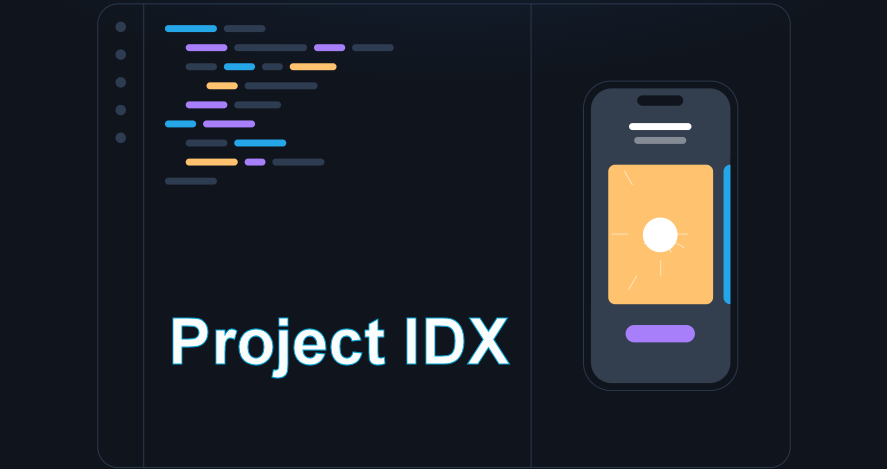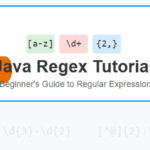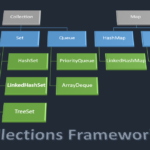In the world of software development, choosing the right Integrated Development Environment (IDE) can significantly impact your productivity, efficiency, and coding experience. For years, Visual Studio Code (VS Code) has been a go-to choice for many developers due to its versatility and extensibility. However, a new player has entered the arena – Project IDX. In this article, we’ll share slight insight on Project IDX and compare it to the well-established VS Code to help you gain a better understanding of these two IDEs and their potential impact on the future of coding.
Project IDX: A Game-Changer in the Making
Project IDX is an ambitious initiative by a consortium of tech giants, including Google, Microsoft, and GitHub, to redefine the way developers work. It aims to create an open-source, cloud-native IDE that seamlessly integrates with various languages, frameworks, and services. While it’s still in its early stages, Project IDX has generated significant excitement within the developer community due to its promising features and potential to revolutionize coding.
- Cloud-Native Experience: Unlike traditional IDEs like VS Code, Project IDX is designed to be fully cloud-native. This means your development environment lives in the cloud, allowing you to access your projects from anywhere with an internet connection. This approach eliminates the need for complex setup processes and enables seamless collaboration among developers in different locations.
- Language and Framework Agnostic: Project IDX aims to support a wide range of programming languages and frameworks out of the box. Whether you’re working on a Python, JavaScript, Java, or Rust project, Project IDX promises to provide you with tailored development environments and tools.
- Collaboration Features: Collaboration is at the heart of Project IDX. With real-time collaborative coding, developers can work on the same project simultaneously, enhancing productivity and reducing development time. This feature could be a game-changer for remote teams and open-source contributors.
- AI-Powered Development Assistance: Project IDX is set to leverage AI and machine learning to provide developers with intelligent code suggestions, bug detection, and even code completion. This AI-driven assistance all powered by Codey, a foundational AI model trained on code and built on PaLM 2 has the potential to streamline the development process, helping developers write better, more efficient code.
- Extensibility: Much like VS Code, Project IDX is designed to be highly extensible. Developers can create and share extensions to tailor their development environment to their specific needs. The open-source nature of Project IDX encourages a thriving ecosystem of extensions.
Visual Studio Code: The Veteran’s Stance
Visual Studio Code has long been a favorite among developers for its versatility, ease of use, and a rich collection of extensions. Let’s take a closer look at some of its key features and compare them with Project IDX:
- Local Development: VS Code primarily operates as a local IDE, allowing developers to work offline and on their local machines. While this offers more control over your environment, it may be less convenient for remote teams or those who prefer cloud-based development.
- Language and Framework Support: VS Code boasts extensive language and framework support, thanks to its vast library of extensions. Developers can find an extension for virtually any language or framework, making it highly adaptable to specific project requirements.
- Mature Ecosystem: With a large and active community, VS Code has a well-established ecosystem of extensions, themes, and plugins. This ecosystem provides developers with a wide range of tools and resources to enhance their coding experience.
- Local Collaboration: While VS Code does support collaborative coding through extensions like Live Share, its primary focus is on individual development. Collaborative coding in VS Code is more of an add-on feature rather than a core aspect of the IDE.
Can Project IDX Replace Visual Studio Code?
The question of whether Project IDX can replace Visual Studio Code is complex and multifaceted. Both IDEs offer unique strengths and cater to different preferences and scenarios. While Project IDX holds immense promise, it is not necessarily positioned to replace VS Code entirely, at least not in the short term.
Project IDX’s cloud-native, collaboration-first approach makes it a strong contender for teams seeking a modern, remote-friendly development environment. However, Visual Studio Code remains a dependable choice for individual developers and those who favor a local IDE.
The future of coding is evolving, and these two IDEs are at the forefront of that transformation. The decision between Project IDX and VS Code ultimately depends on your specific needs and workflow. Project IDX may become a compelling option for teams embracing cloud-native development and collaboration, while Visual Studio Code continues to serve as a robust choice for developers who appreciate a mature ecosystem and the familiarity of a local IDE.
Conclusion
Project IDX and Visual Studio Code represent two different approaches to integrated development environments. Project IDX, with its cloud-native, collaboration-first design, holds the potential to reshape how developers work together, particularly in remote and distributed teams. On the other hand, Visual Studio Code continues to be a reliable choice for individual developers and those who prefer a local development environment.







Leave a Reply
You must be logged in to post a comment.